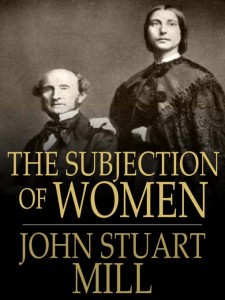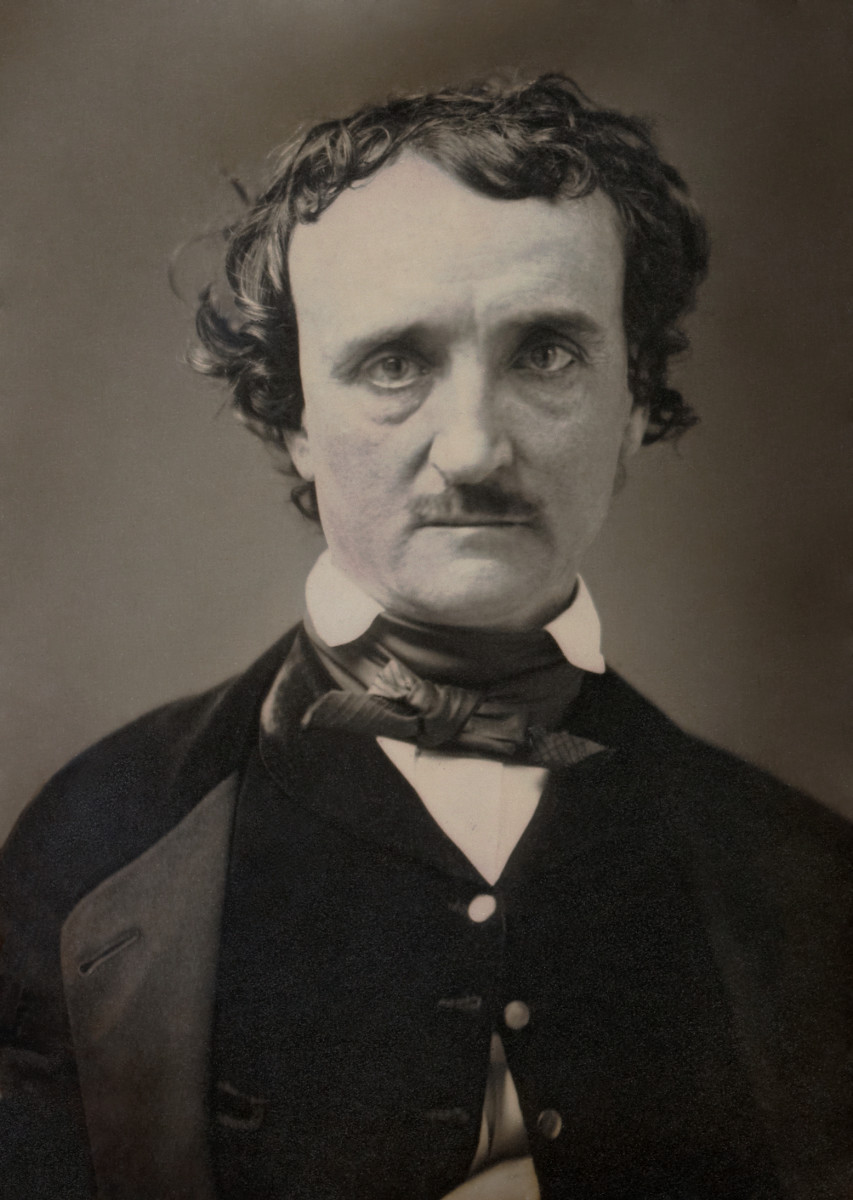Defining Victorian Literature

Let's Start with Queen Victoria
As with any literary period, it is difficult, even impossible, to perfectly categorize and explain what makes Victorian literature Victorian. The most obvious trait of the period, however, is its tie to the reigning English monarch at the time. For this reason, it seems reasonable to begin any consideration of the period’s writing with a look at the Queen’s own correspondence. In her letters, Victoria touched on one of the most critical issues of her time, “the Position of Women” (Victoria, 1547-1552). This is a subject taken up by many writers of the period, including Elizabeth Barrett Browning and John Stuart Mill (Barrett Browing 1155-1174; Mill 1121-1129). Two other subjects which characterize much of Victorian literature are the struggle between faith and doubt, and “The Condition of the Working Class” (Engels 1101-1108). These three issues make up a great deal of the content of Victorian Literature.
In her personal and official letters, Queen Victoria makes it very clear that she disapproves of “the mad & utterly demoralizing movement of the present day to place women in the same position as to professions—as men…“ (Queen Victoria 1551). She considered the women’s rights movement to be “dangerous & unchristian & unnatural” and strongly urged “anyone who can speak or write to join in checking this mad, wicked folly of “women’s rights’’ (Queen Victoria 1551, 1552). It is worth noting that, though the Queen felt that many aspects of being a wife and mother were difficult and unpleasant, she believed that “…God has willed it so and that these are the trials which we poor women must go through…”(Queen Victoria 1550). This commitment to one’s perceived duty over personal fulfillment is one of the traits that characterize the period.
There were many who balked at the forced separation of women’s and men’s spheres of influence. In her poetic novel, Aurora Leigh, Elizabeth Barrett Browning explores the conflict between the role of artist and that of a proper Victorian woman. Aurora’s cousin sums up the prevailing view of the time pretty well when he says;
“Thanks to you
My cousin! that I have seen you not too much
Witch, scholar, poet, dreamer, and the rest,
To be a woman also” (83-87 Book 2).
Prose writers also tackled the issue of a woman’s place. In “The Subjection of Women” the Utilitarian thinker John Stuart Mill makes the (then) outrageous claim “that the principle which regulates the existing social relations between the two sexes—the legal subordination of one sex to another—is wrong in itself, and now one of the chief hindrances to human improvement;” (Mill, 1122).
Women’s rights were hardly the only hot topic amongst Victorian writers. Future Marxist Friedrich Engels wrote a scathing critique of the “hypocritical town planning” that insulated the middle class from the sight of squalor and suffering”’ (Damrosch, and Dettmar 1101). Engels’s writings were an indictment of capitalism, and became a “socialist classic” (Damrosch, and Dettmar 1101). Due in part to the theories advanced by Charles Darwin, the efficacy of religion was also coming into question during the Victorian period. Darwin neither denied the existence of God nor the value of Christianity, but he did make the shocking assertion that the belief in God is not innate or instinctive, but “apparently follows from a considerable advance in the reasoning powers of man, and from a still greater advance in his faculties of imagination, curiosity and wonder” (Darwin 1279).
The Victorian era was a time of social change, scientific discovery and technological advancement. Theologies and social ideologies that had previously been taken for granted were being called into question. In their own way, each of the period’s prominent writers tackles at least one of the extant issues of the day. Many modern advances in gender equality and laborers’ rights owe their existence to passionate writers of the Victorian period, as do some less favorable results, such as the shift away from faith in God toward faith in science. A basic understanding of the concerns and problems faced by Victorians helps to put some of today’s most hotly debated topics into perspective and reveals the fact that literature is never irrelevant, and that “[there is] no new [thing] under the sun” (Ecc. 1:9 KJV).

Works Cited
Blue Letter Bible. "The Preacher Solomon - Ecclesiastes 1 - (KJV - King James Version)." Blue Letter Bible. 1996-2012.
Browning, Elizabeth Barrett. “Aurora Leigh: Book 2” The Longman Anthology British Literature. Vol. 2B. Damrosch, David, and Kevin Dettmar, ed. Boston, MA: Longman, 2010.1164. Print.
Damrosch, David, and Kevin Dettmar, ed. "Friedrich Engels" The Longman Anthology of British Literature. Vol. 2B. Boston, MA: Longman, 2010. 1101. Print.
Darwin, Charles. “The Descent of Man” The Longman Anthology British Literature. Vol. 2B. Damrosch, David, and Kevin Dettmar, ed. Boston, MA: Longman, 2010.1279. Print.
Elizabeth, Queen. “Letters and Journal Entries on the Position of Women” The Longman Anthology British Literature. Vol. 2B. Damrosch, David, and Kevin Dettmar, ed. Boston, MA: Longman, 2010.1550,1551,1552. Print.
Engels, Freidrich. “The Condition of the Working Class in England in 1844” The Longman Anthology British Literature. Vol. 2B. Damrosch, David, and Kevin Dettmar, ed. Boston, MA: Longman, 2010.1102. Print.
Mill, John Stuart. “The Subjection of Women” The Longman Anthology British Literature. Vol. 2B. Damrosch, David, and Kevin Dettmar, ed. Boston, MA: Longman, 2010.1122. Print.
Related Links
- Key Concepts of the Philosophy of John Stuart Mill
A summery of the central ideas of the philosophy of John Stuart Mill and his contribution to Utilitarianism. - Elizabeth Barrett Browning: A Woman for All Seasons.
- John Stuart Mill: The Subjection of Women « LonerGrrrl
- The Victorian Web: An Overview








